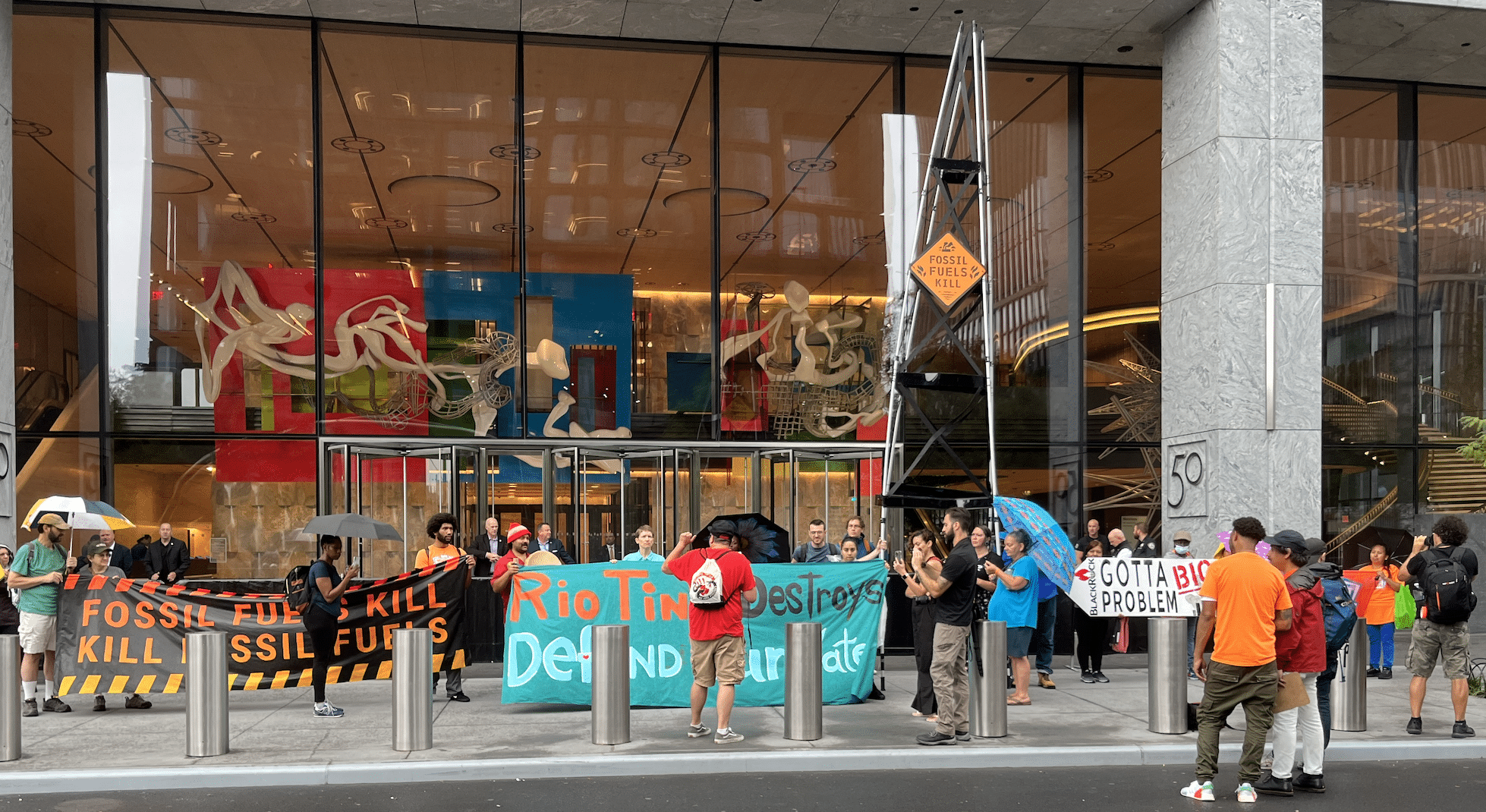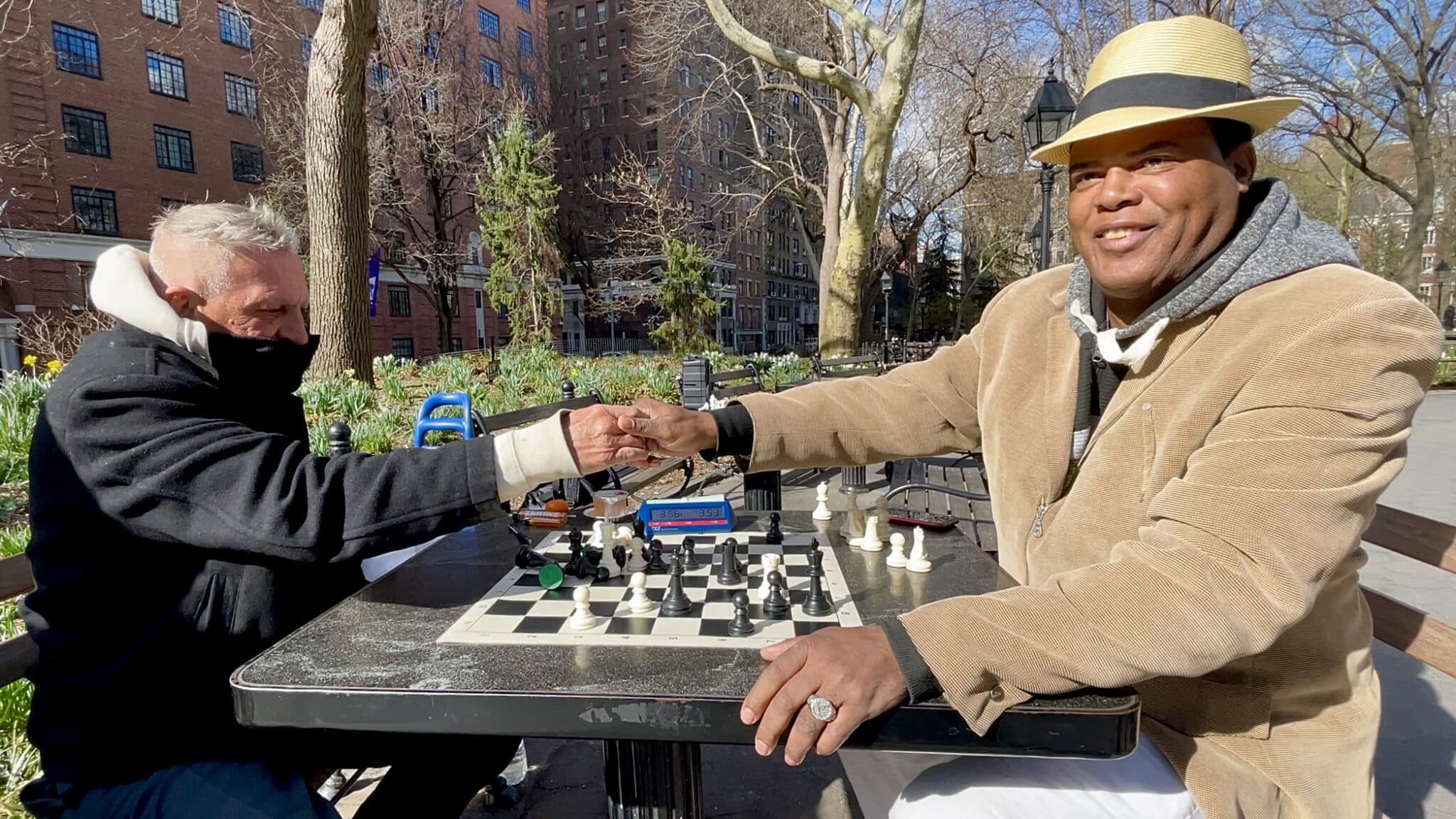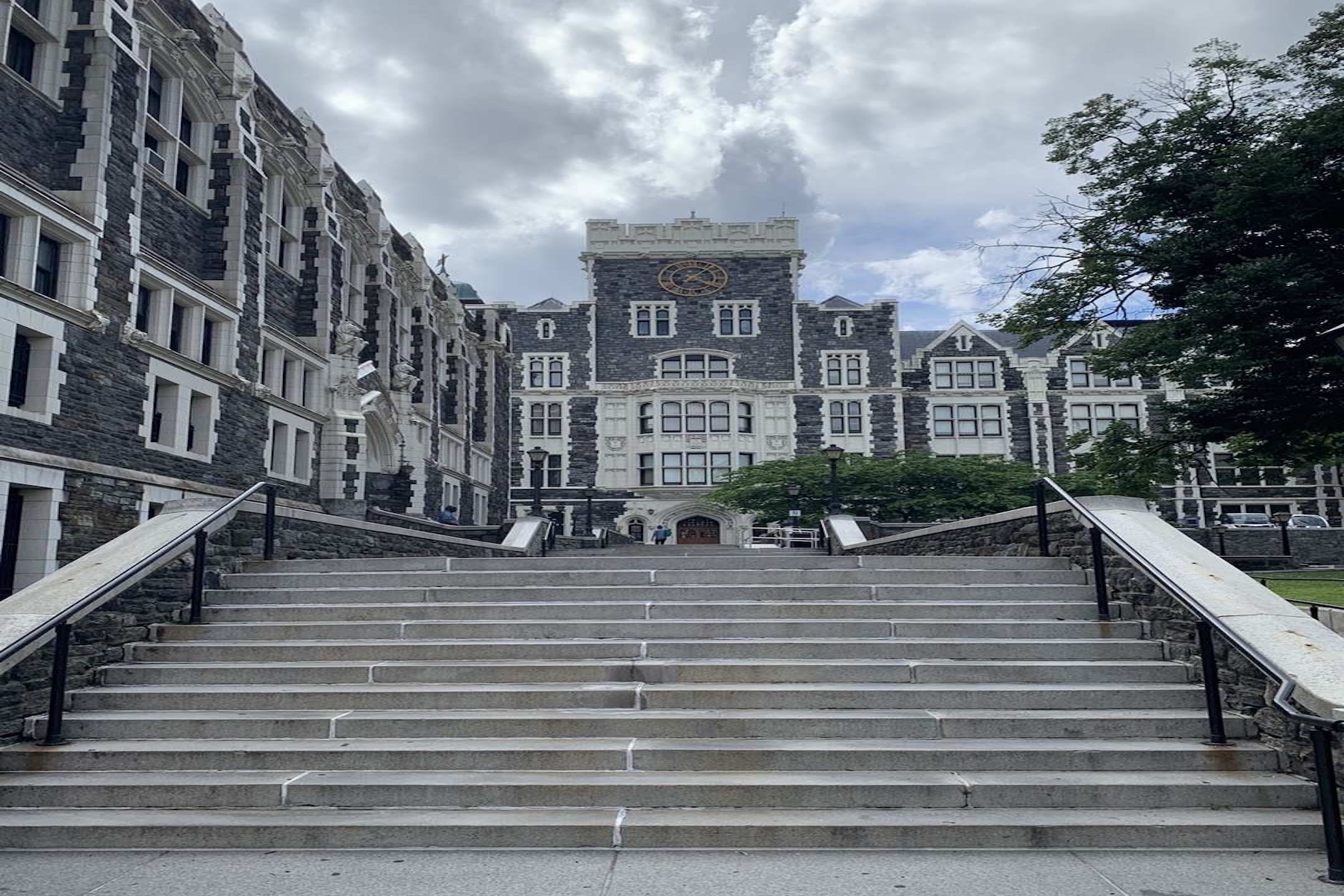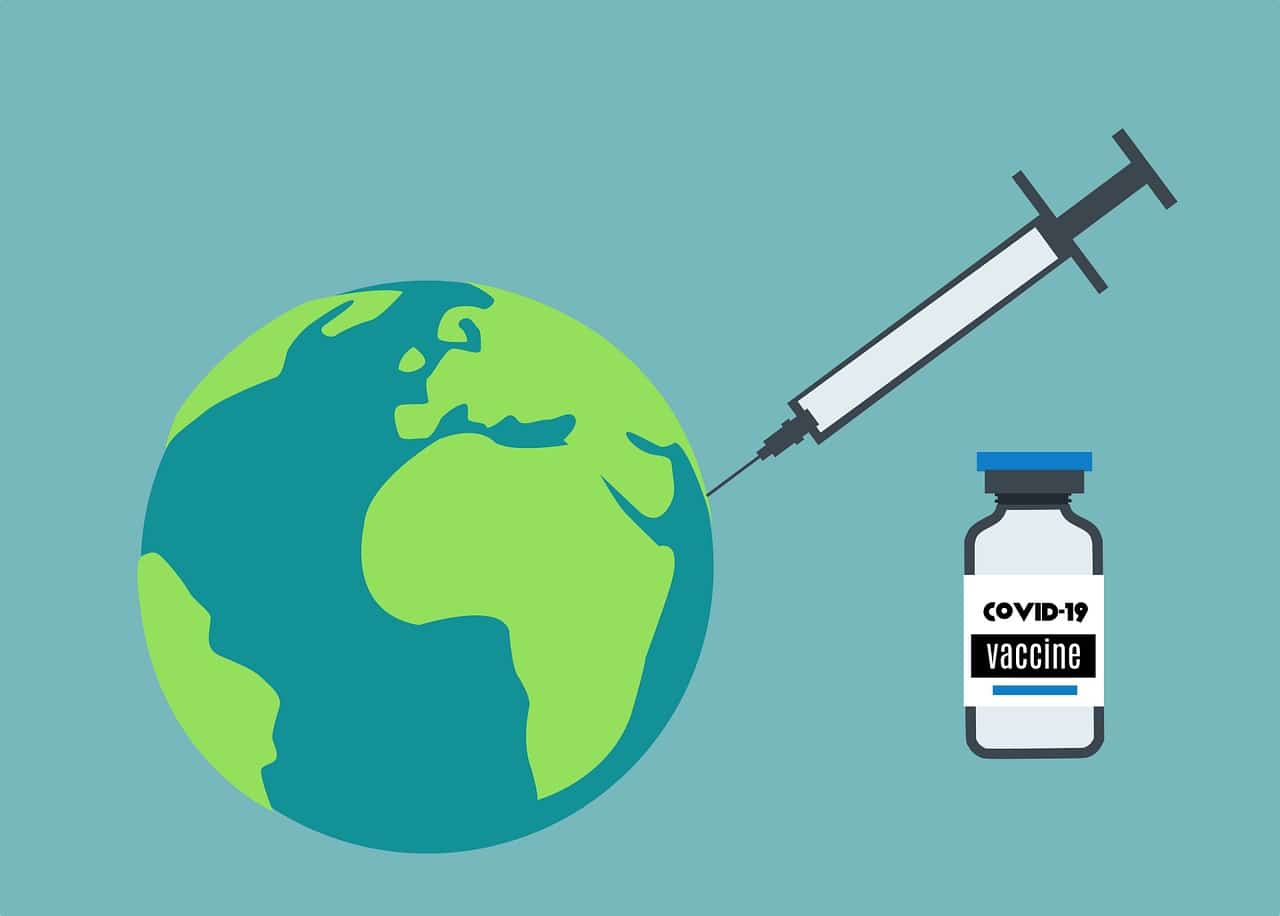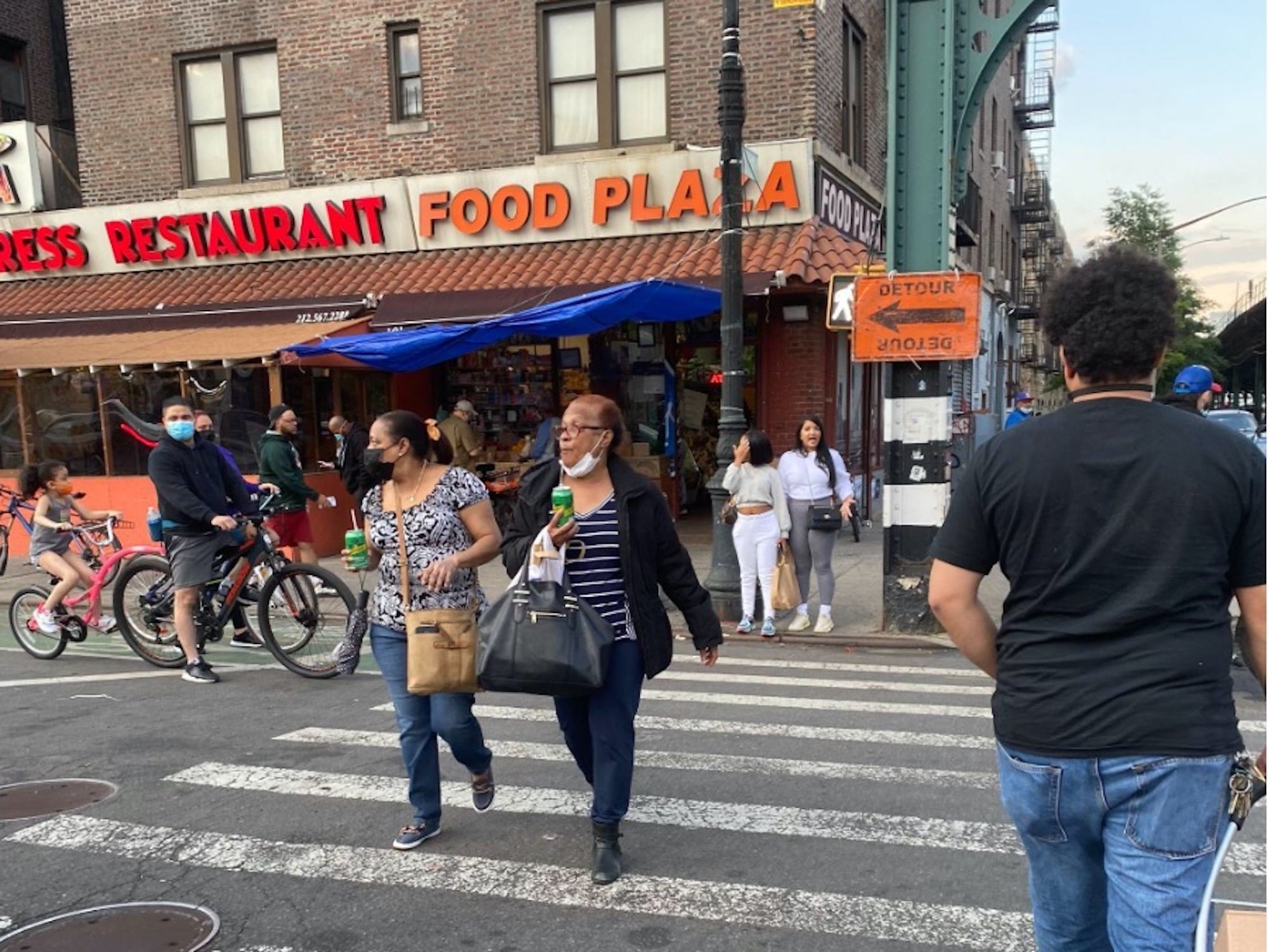Protesters in front of the BlackRock headquarters. Photo by Aaron Pietzonka.
NEW YORK
On a rainy September morning, protesters blocked the doors to the Hudson Yards headquarters of BlackRock, the world’s largest asset manager. One of their signs said,“Fossil fuels kill – kill fossil fuels,” other signs and chants demanded BlackRock divest from fossil fuel investments. Later that morning, the NYPD arrested six activists.
Climate change and its devastating consequences fill the media. Scientists offer a grim outlook. Burning fossil fuel heats up the planet and puts billions of people in danger, according to the Intergovernmental Panel on Climate Change. A recent study by Harvard University found that in the year 2018 alone, 8 million people died because of the air pollution created by burning fossil fuels. Some refuse to stand by and watch. Increasingly in New York and elsewhere, people are taking action and putting their bodies on the line to fight climate change and its causes.
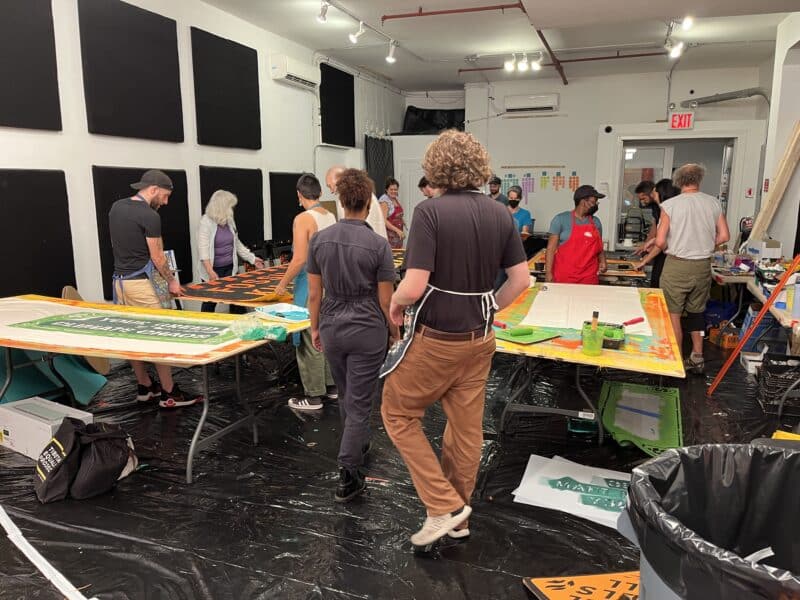
Climate Activists in Brooklyn Preparing for a Protest. Photo by Aaron Pietzonka.
Three New York climate activists explained why they protest and why they risk arrest.
Teddy Ogburn is a 26-year-old documentary filmmaker who primarily works on environmental and social justice issues. He remembers the feeling of climate anxiety when he was younger. “If business goes on as usual, I don’t know what will be remaining of the world.” Activism allows him to escape from that feeling, “I think that now I know my own way and capacity of what to do about the climate crisis. I experience those symptoms a lot less because I have an outlet for them. I don’t have political power alone or in writing a letter, but I do when blockading things, using my body with my friends and people that want to see a world be different.” During the dozens of protests Teddy organized in the last two years with a group called Planet over Profit (POP), he was arrested eight times.
Using civil disobedience as a means of protest has deep roots. Many successful social movements broke laws non-violently to change systems they perceived as unjust, including the Suffragettes in the United Kingdom, the Civil Rights movement in the United States, and LGBTQ+ activists during the AIDS epidemic in New York. Climate activists use these same tactics to make their voices heard.
Frankie Iannuzzi, a 23-year-old graduate student who lives in Harlem, joined Planet over Profit (POP) five months ago. Frankie explained that they felt the strong need to do something about what they call the climate emergency: “I decided to leave school because I was looking to do something more practical and more effective. That is how I ended up finding POP and getting involved.” They were arrested for the first time during the protest at BlackRock, explaining that “sometimes you have to be a direct disturbance to get people to hear you.”
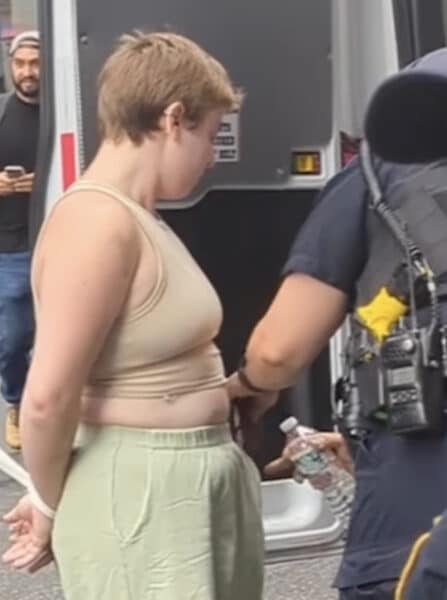
Frankie Iannuzzi getting arrested at BlackRock headquarters. Photo by Planet Over Profit (POP).
Many activists see their actions as morally justified. “Legality and morality are not the same thing,” said Teddy. He considers the people who approve and fund new fossil fuel projects as the “real criminals.”
Despite the belief in their protests, climate activism takes its toll on the activists. Frankie says, “It is really, really easy to get burnt out and to get discouraged with such a big issue. The more you learn, the more daunting and scarier it is.”
Maryellen Novak, a 45-year-old community organizer and veteran of New York climate activism, experienced this firsthand. After four years of intense protest during the Trump administration, Maryellen felt “like somebody had beaten the hell out of you. And when finally, the person is removed, you are still scarred. So you want to take a breather and just heal for a little while.”
During a protest against the “Line 3” pipeline that runs from Canada through the Midwest in June 2021, Maryellen experienced exhaustion and hypothermia in the cold Minnesota weather. She spent two days in a jail cell, feeling “stripped of any real humanity.” Maryellen stressed that this experience was even harsher for indigenous people who took part in the protests.
Despite the risk, all the three activists emphasize the importance of solidarity. For Maryellen, activism “is about building solidarity. If I didn’t have that sense of community of people that I can turn to and say, ‘Are you feeling this way, too,’ I’d be very lost.” Teddy agrees: “There is a community of people with great humor and creativity.” With that in mind, Teddy, Frankie and Maryellen prepare the next protest.
Tags: Aaraon Pietzonka climate activism climate activists environmental activists Frankie Iannuzzi Maryellen Novak protest outside Blackrock Teddy Ogburn
